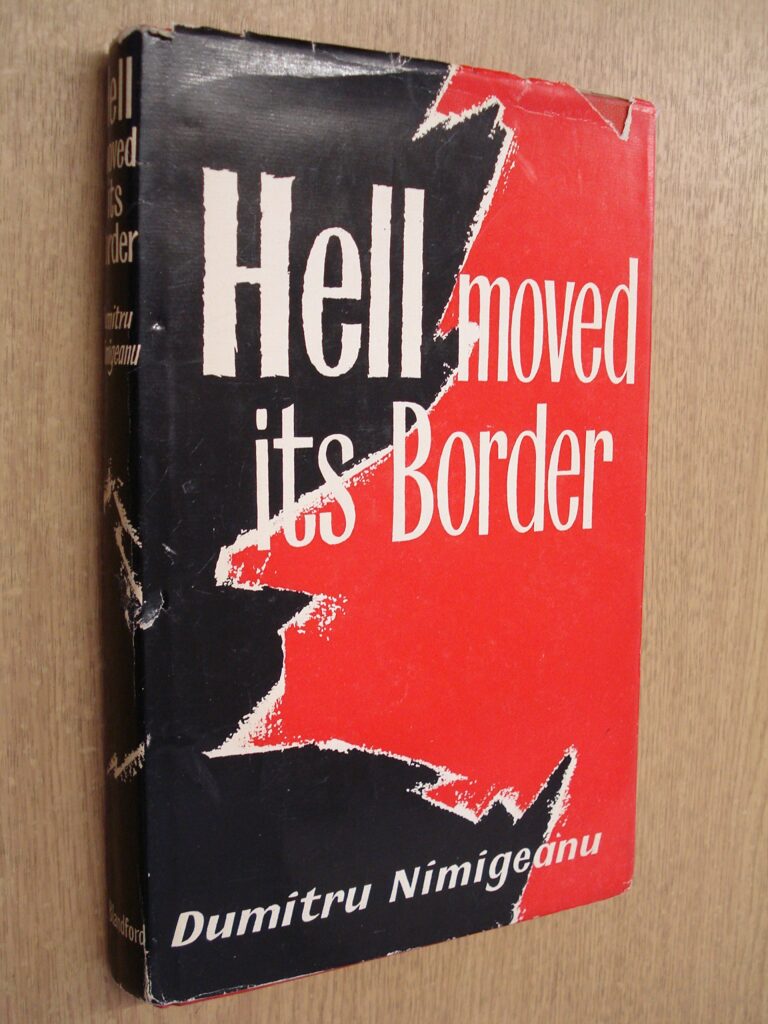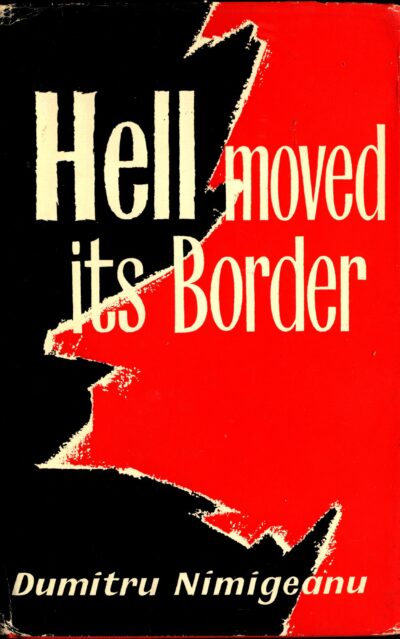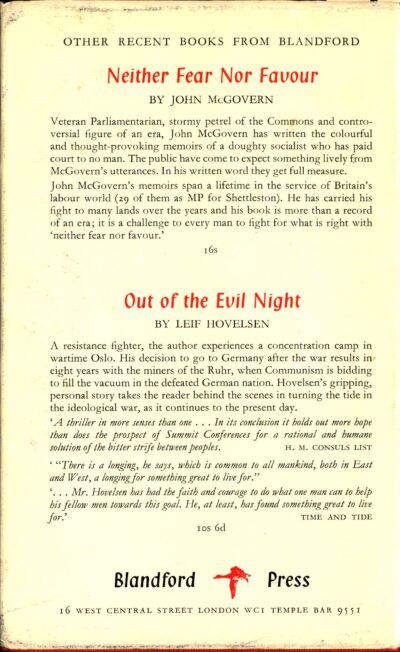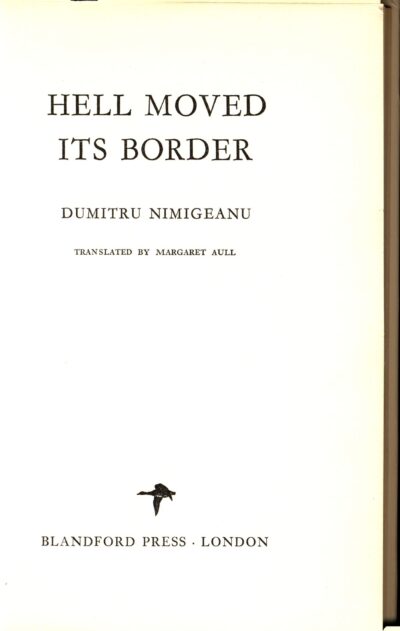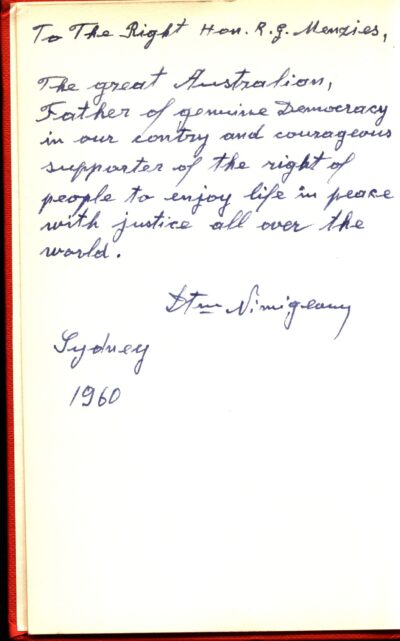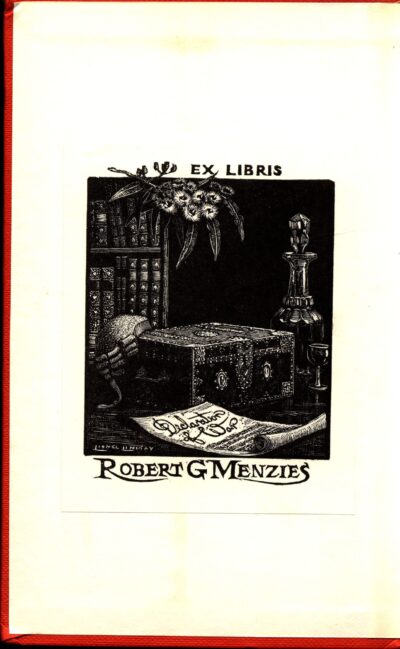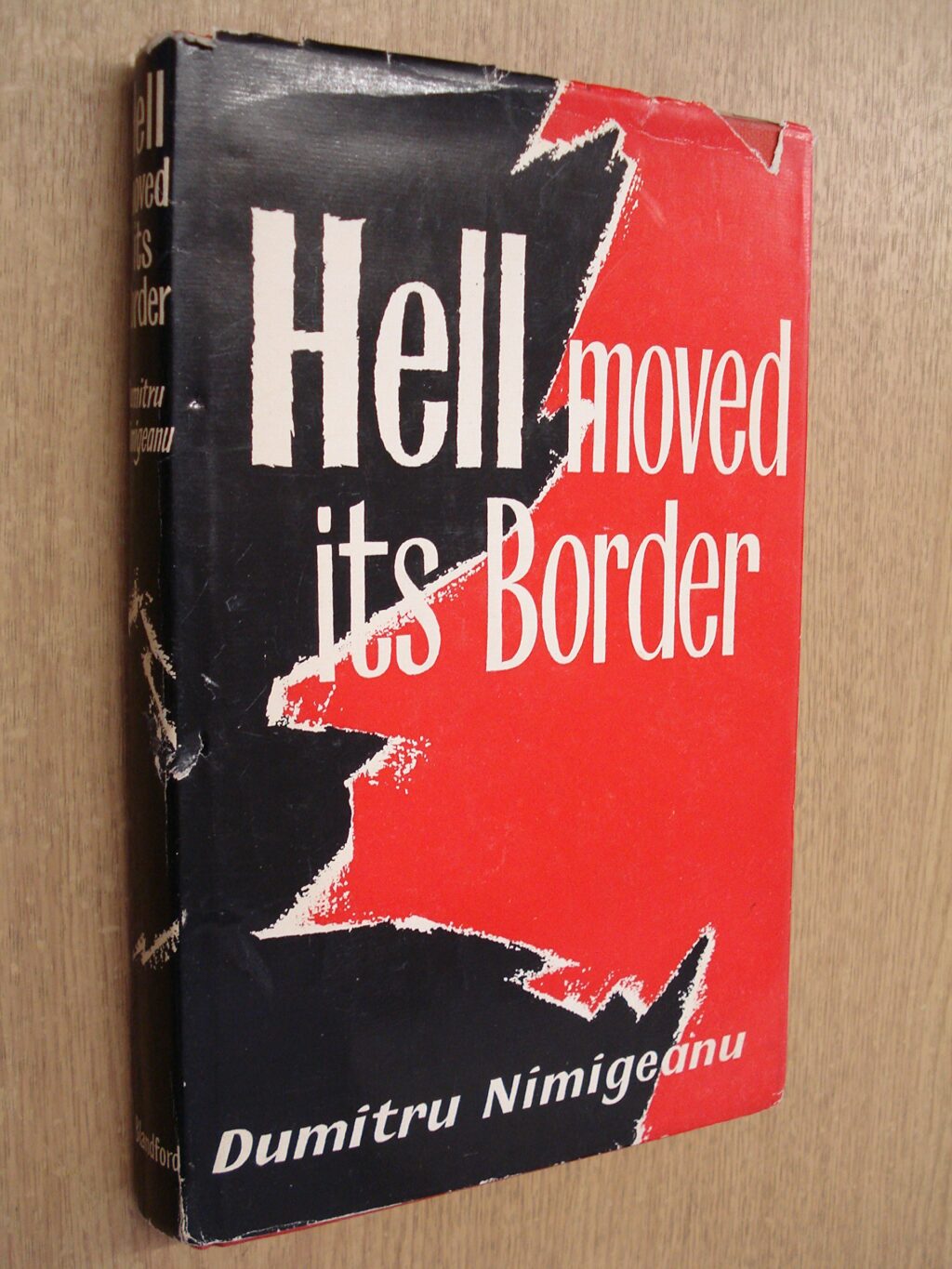Dumitru Nimigeanu, Hell moved its Border (1960)
Dumitru Nimigeanu was a Romanian peasant who endured terrible atrocities at the hands of the Soviet Union before escaping as a refugee to Australia. He would go on to write a harrowing and poignant memoir of his experiences in a Stalinist Gulag; a unique and much under-appreciated historical document.
Nimigeanu was born in the small village of Tereblecea, on the border of Romania and Russia, on 8 October 1906. In June of 1940 the USSR invaded and annexed Bessarabia and Northern Bukovina from Romania, with Nimigeanu’s village becoming one of many incorporated into Soviet Territory. The following year, Nimigeanu was deported to Siberia along with his wife and young daughter. After six years of captivity, forced labour and near-starvation in the bitter cold, the family escaped, making their way back to Romania before crossing the border into Yugoslavia. There Nimigeanu had to endure another 16months of imprisonment before he finally managed to escape to the West.
Hell moved its Border is a publication of Nimigeanu’s personal account of these events, originally produced as a handwritten manuscript while Nimigeanu was a broken an exhausted man in a refugee camp in Trieste, Italy. He describes the compulsion to tell his story in the following terms:
‘Having reached the free world – a world in which it is still possible to think, write and speak freely, a world which still controls its own resources, which is still the possessor of a spontaneous culture undictated by government and of the Christian religion and the charity implicit in it, I feel an urge which springs from the very depths of my being to TELL THE WORLD’
‘Until I have done this, I shall find no rest, for the image of those six years spent in the Siberian wilderness haunts me everywhere. The sufferings of those years have left an imprint on every fibre of my being. Nevertheless, I am still alive. I am alive because I believe that the day of freedom will surely dawn; will dawn for all those in Siberia as well.’
‘Although I have no gift for writing, I feel a holy mission within me to point out the suffering of my country, to stand up for Christ against Satan, for, however small the contribution of one individual may be, when his country and his nation are in deadly peril, he must make that contribution, in so far as his powers permit, towards their salvation.’
‘I base my arguments not on book-learning, but on what I and my family and millions of other human souls have experienced under the domination of Russian Communism.’
Nimigeanu’s grasp of English was understandably limited, and his original manuscript had to be published as a translation by Margaret Aull, with a foreword by Grigore Nandis, a former member of the by then dismantled Romanian Parliament. Despite his limited vocabulary, Nimigeanu managed to write personally in the copy of Hell moved its Border he sent to Robert Menzies:
‘To The Right Hon. R.G. Menzies, The great Australian, Father of genuine Democracy in our country and courageous supporter of the right of people to enjoy life in peace with justice all over the world. Dtmu Nimigeanu. Sydney 1960’
The book stands as witness to the terrible atrocities Nimigeanu saw and endured, but also of the hope and new beginnings that could be found in Australia. Menzies’s personal copy is particularly evocative of the Cold War climate in which he fought tirelessly to ensure that the communist menace did not reach Australia. Many of Menzies’s most controversial policy decisions, like trying to ban the communist party or committing Australian troops to Vietnam, can only be understood in a context where Menzies knew of these horrors. In this sense Nimigeanu certainly fulfilled what he believed to be his divine mission.
You might also like...
Sign up to our newsletter
Sign up for our monthly newsletter to hear the latest news and receive information about upcoming events.

